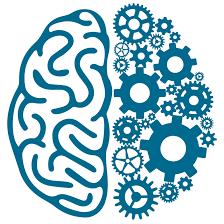Imagine learning new information faster and using it more effectively whenever you need to. How might your life transform when you can grasp intricate concepts, languages, and strategies in a fraction of the time it typically requires?
In this article, we’ll explore how to prepare your mind to learn better and retain information faster.
Be Mentally Prepared for Learning
One of the main challenges we face when trying to absorb new information is dealing with distractions. These annoying interruptions come in many forms, hindering our concentration, decreasing our retention, and slowing down our comprehension.
While it’s typically easy to spot external distractions (like social media notifications, ambient noises, or talkative roommates), recognizing internal distractions can be trickier.
Internal distractions are thoughts that invade our minds while we attempt to learn new concepts. These thoughts can range from personal issues and responsibilities to unrelated ideas that appear out of nowhere. These mental interruptions can seriously hinder our learning process regardless of how unimportant they may seem.
To combat internal distractions, it can be helpful to learn to identify when your mind starts to drift. Gently remind yourself that getting distracted is normal. Then, consciously refocus your attention on the task at hand. Mastering mindfulness can be difficult, but consistently working on this practice will help you regain focus more effectively.
The Importance of Staying Well-Rested
Being well-rested is essential for learning. Resting not only helps recharge our brains but also makes it easier to absorb new information. Good rest can improve memory, focus, and thinking skills overall.
Here are some tips to make sure you’re getting enough rest:
Stick to a Regular Sleep Schedule—Hitting the sack and waking up at the same time every day helps keep your body’s internal clock running smoothly and leads to better sleep. Better sleep means you’ll have the energy to learn and perform at your best.
Break Your Study Sessions into Bite-Sized Pieces—Don’t try to study non-stop for hours on end. Instead, tackle smaller portions of what you need to learn and take short breaks in between. This keeps your focus sharp and stops you from burning out.
Embrace Power Naps—Are you sluggish? Take a quick 20- to 30-minute nap during the day to increase your alertness. If retaining new knowledge feels challenging, pause and let your mind quiet for a bit.
The Role of Nutrition in Enhancing Learning
Omega-3 fatty acids in fish, seeds, and nuts are essential building blocks for our brain cells. Research suggests that they help improve memory, concentration, and problem-solving ability.
To ensure proper nutrition for better brain function, try the following:
Eat a Balanced Diet—Eat a mix of colorful fruits and veggies, hearty whole grains, lean proteins, and good fats every day. That way, you’ll fuel your brain with all the important nutrients and energy it needs to function at its best.
Stay Hydrated—Drink plenty of water throughout the day to maintain proper hydration levels, which is crucial for overall brain health.
Consume Omega-3 Fatty Acids—Foods such as fish, walnuts, and flaxseeds are packed with omega-3 fatty acids. They’re great for boosting your brain power and keeping your memory sharp.
Study with a Curious Mind and the Intent to Learn
Exploring a subject with an eager and curious attitude helps you stay engaged, consider new perspectives, and understand the topic better. This mindset paves the way for academic achievements and nurtures personal development.
Here are a few ways to study with a curious mind and the intent to learn:
Ask Questions—Ask questions about the things you’re learning. By doing this, not only will you clear up any misunderstandings, but you’ll also discover where you might need more details, sparking your curiosity to dig deeper. Ask questions like, “What are the key ideas or concepts in this material?” “How does this connect to things I’ve learned before?” and “What’s the author’s goal in sharing this information?”
Connect Ideas—Look for connections between different concepts, topics, or fields of study. Relating new information to something you already know makes it more interesting and easier to retain.
Embrace Challenges—Don’t shy away from complex or unfamiliar material. Instead, view it as an opportunity to stretch your mental muscles and grow as a learner. Break down complex topics into bite-size chunks and tackle them one at a time.
Reflect on Your Learning Journey—Periodically take a step back from your studies to think about what you’ve learned and how it relates to other aspects of your life.
Engage in Metacognition—Metacognition, or thinking about your thinking, prompts you to consider the bigger picture and connect disparate ideas. Some common metacognition strategies include setting goals, self-monitoring, self-questioning, and using various memory techniques to optimize the learning process. These strategies will help cultivate a curious mind and promote an eager attitude toward learning.

